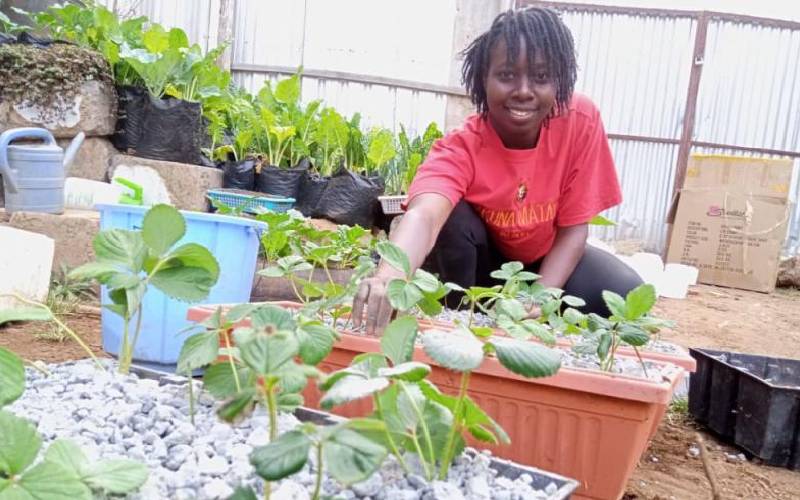
Food scapping. The new trend that has captured millenials. It involves growing edible crops and flowers in an attractive manner.
With numerous buildings coming up everywhere, our towns and cities are becoming a concrete jungle. With demand for real estate space going up, farming is not a priority. But a new crop of young farmers in urban areas are using all manner of means to farm despite the space challenges. There are those who are now using a concept called foodscaping in a bid to add freshness, life, and colour to urban spaces.